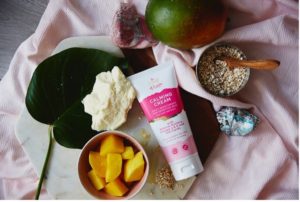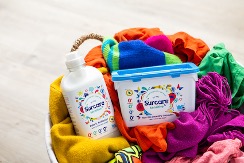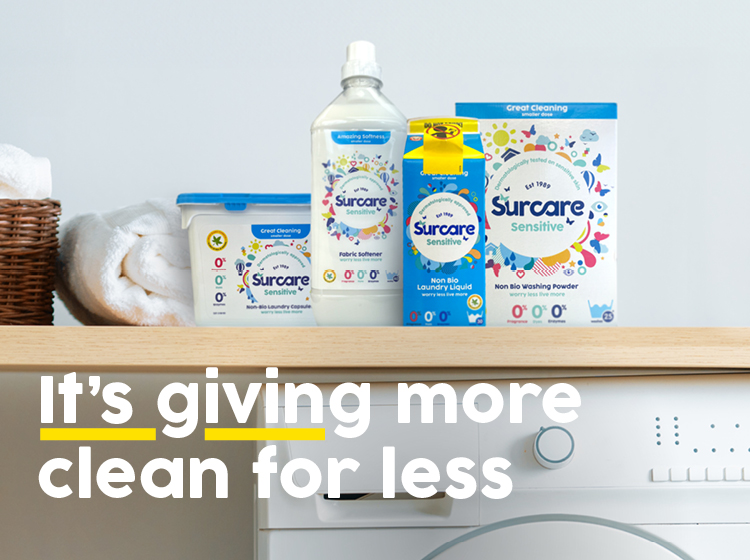More people are suffering from sensitive skin than ever before, and stress may well be the cause. The connection between the brain and skin is often experienced, for example when you feel nervous and start to blush or sweat. This is an example of a temporary stress response. But science suggests that repeated exposure to stress can have lasting effects on your skin.
Here are some helpful reminders of the ways people can be kinder to stressed out sensitive skin – from the inside and out.
Stress and Skin
Stress is something that we tend to feel emotionally it’s not always something we associate with a physical manifestation – but it can have a very real impact on skin. During times of tension and uncertainty, the body produces excess cortisol (or the stress hormone as it is also known) which can impact on everything from blood pressure, the immune system and inflammation of the skin.
It will come as little surprise that the stress of the pandemic has resulted in more people experiencing sensitive skin conditions, often exacerbated further by more hand washing, greater use of cleaning products and antibacterial hand gels.
Mintel found that a whopping 32% of British women would now describe their skin as sensitive in 2021 (rising to 39% of women aged 16-24 and 40% among 25–34-year-olds).
So, if you have noticed changes to your skin because of stress, one of the best places to start is to try and regain some control over the anxiety that you are experiencing. This could be via yoga, meditation or simply talking to a friend or loved one. Tackling stress at the root cause is an important first step and should never be ignored.
Eat To Beat Sensitive Skin
Alcohol, convenience and comfort food are mechanisms to help people cope with busy, stressful lives. Unfortunately, highly processed, high fat and sugary foods will only be adding to skin woes. The human body needs to be pampered on the inside, just as much as the outside and an antioxidant rich diet, featuring fatty fish (such as salmon or mackerel), green leafy vegetables, nuts, berries and brightly coloured fruit and veg like carrots and oranges will give your skin the nourishment it needs.
Alcohol is renowned for dehydrating the body and it can affect the way that oxygen and other nutrients travel through the skin. So, if you are suffering from dry, chapped and sensitive skin then it may be a good idea to reduce your alcohol intake or cut it out completely.
Changing Products Used Can Also Help
Using products that are made especially for people with sensitive skin can help to manage skin conditions and, alongside the increase in skin flare ups and skin irritation, is a marked rise in people searching for a solution. Google search data since the pandemic began shows a huge spike in searches for products linked to sensitive skin, as more and more people look for new ways to regain healthier, happier skin.
But when shopping for beauty and cleaning products when you have sensitive skin can be a bit of a minefield. Our advice is look for simplicity and transparency when it comes to both ingredients and claims – which is often not easy to find in a market full of big advertising promises!
Moisturisers, Serums and Face / Body Washes
The first place that many people start is topical skincare products like moisturisers and bath soaks which you can physically ‘see’ and ‘feel’ working. Look for products with naturally derived and nourishing ingredients that have been dermatologically tested and formulated especially for sensitive skin sufferers. Ingredients such as natural butters, omega 3 and 6 vitamin E and oat lipids will provide natural but hard working moisturisation to boost the skins protective barrier and increase hydration.
Self-care is an important part of helping to relieve stress and anxiety, so pampering yourself shouldn’t be overlooked. Luxurious bath salts with Epsom salts, soothing oils and healing crystals will not only help to relieve your skin, but they will also help you relax and promote restful sleep.
Laundry Care
It’s also important not to overlook the other things that skin comes into contact with. The products we use to wash the clothes that we wear every day and the bed sheets we sleep in every night play a huge role in keeping our skin healthy and skin flare ups at bay. As do cleaning products such as washing up liquid.
If your skin is sensitive then you should be looking for products that don’t contain anything that doesn’t need to be there – such as fragrances, enzymes, acids and dyes.
Dermatologically approved and with a seal of approval from Allergy UK, Surcare’s range of laundry products have been created with the most sensitive of skin in mind and are designed to reduce skin flare ups.
Switching your laundry products could be an important first step in helping your stressed and sensitive skin back to healthy by reducing additional irritation.
With rising energy costs families may well be doing more washing up than sticking a half full dishwasher on. This too can take its toll, leading to dry, cracked and painful hands. With nothing added in except exceptional cleaning power, Surcare’s washing up liquid is designed to reduce irritation and be kinder to your hands than other brands. With a thumbs up from British Allergy Foundation, Allergy UK, this could be another secret weapon in the fight against dry skin.
In a world post Covid-19 it is clear that people are becoming more conscious about our health and wellbeing and as a consequence people are starting to pay more attention to the ingredients in the products that they use both on their body and in the home.
Stressed out skin can be repaired and a 360-degree approach to self-care is the perfect place to start.
















































